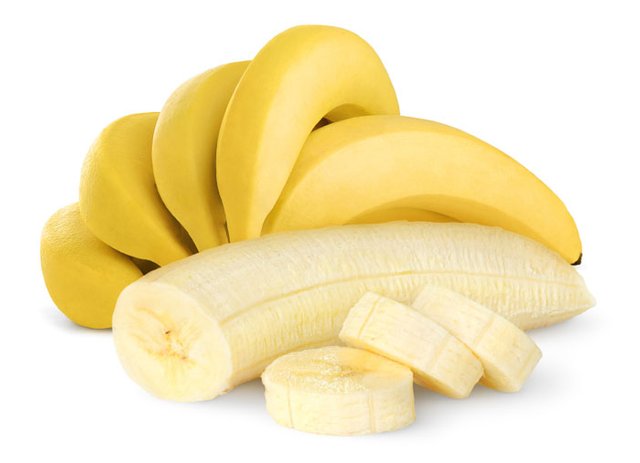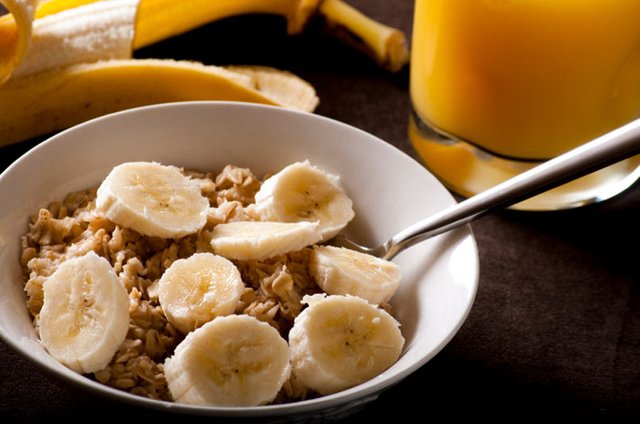Benefits and health risks of bananas
Bananas are one of the most widely consumed fruits in the world for good reason. Eating them could help lower blood pressure and reduce the risks of cancer and asthma.
Today, bananas are grown in at least 107 countries and are ranked fourth among the world's food crops in monetary value. Americans consume more bananas than apples and oranges combined.
With the world consuming so many bananas, it's not surprising that people are asking the question: are bananas good for you?
This article will take a look at the potential health benefits of bananas, such as improving heart health and promoting regularity. It also examines the possible health risks associated with them.

Bananas are rich in potassium and fiber.
They may help prevent asthma, cancer, high blood pressure, diabetes, cardiovascular disease, and digestive problems.
Ripen bananas at room temperature and add them to cereal for a tasty breakfast.
People who use beta blockers should not suddenly increase their intake of bananas.
Blood pressure
Maintaining a low sodium intake is essential to lowering blood pressure, however increasing potassium intake may be just as important because of its vasodilation effects. According to the National Health and Nutrition Examination Survey, fewer than 2% of US adults meet the daily 4700 mg recommendation. 3
Also of note, a high potassium intake is associated with a 20% decreased risk of dying from all causes.3

Asthma
A study conducted by the Imperial College of London found that children who ate just one banana per day had a 34% less chance of developing asthma.
Cancer
Consuming bananas, oranges, and orange juice in the first two years of life may reduce the risk of developing childhood leukemia. As a good source of vitamin C, bananas can help combat the formation of free radicals known to cause cancer. High fiber intakes from fruits and vegetables like bananas are associated with a lowered risk of colorectal cancer.
Heart health
The fiber, potassium, vitamin C and B6 content in bananas all support heart health. An increase in potassium intake along with a decrease in sodium intake is the most important dietary change that a person can make to reduce their risk of cardiovascular disease, according to Mark Houston, MD, MS, an associate clinical professor of medicine at Vanderbilt Medical School and director of the Hypertension Institute at St Thomas Hospital in Tennessee.3
In one study, those who consumed 4069 mg of potassium per day had a 49% lower risk of death from ischemic heart disease compared with those who consumed less potassium (about 1000 mg per day).3
High potassium intakes are also associated with a reduced risk of stroke, protection against loss of muscle mass, preservation of bone mineral density and reduction in the formation of kidney stones.3
Diabetes
Studies have shown that type 1 diabetics who consume high-fiber diets have lower blood glucose levels and type 2 diabetics may have improved blood sugar, lipids and insulin levels. One medium banana provides about 3 grams of fiber.
The Dietary Guidelines for Americans recommends 21-25 g/day for women and 30-38 g/day for men.
Digestive health
Bland foods such as apple sauce and bananas are recommended for diarrhea treatment. They are part of an approach known as the BRAT diet; this stands for bananas, rice, applesauce, and toast.
Electrolytes like potassium are lost in large quantities during bouts of diarrhea and may make those affected feel weak. Bananas can replace these lost nutrients.
Bananas can also help to promote regularity and replenish potassium stores.
Preserving memory and boosting mood
Bananas also contain tryptophan, an amino acid that studies suggest plays a role in preserving memory and boosting your mood.

Potassium
Bananas are rich in a mineral called potassium. This mineral is important as it helps maintain fluid levels in the body and regulates the movement of nutrients and waste products in and out of cells.
Potassium also helps muscles to contract and nerve cells to respond. It keeps the heart beating regularly and can reduce the effect of sodium on blood pressure.
Potassium may reduce the risk of kidney stones forming as people age. In turn, healthy kidneys make sure that the right amount of potassium is kept in the body.
One medium-sized banana contains 422 milligrams of potassium. It is best to try to get potassium from dietary sources such as bananas. Otherwise, potassium supplements are available to purchase online.
Nutritional profile
One serving of banana is considered to be about 126 grams. One serving of banana contains 110 calories, 30 grams of carbohydrate and 1 gram of protein. Bananas are naturally free of fat, cholesterol, and sodium.2
Bananas provide a variety of vitamins and minerals:
Vitamin B6 - 0.5 mg
Manganese - 0.3 mg
Vitamin C - 9 mg
Potassium - 450 mg
Dietary Fiber - 3g
Protein - 1 g
Magnesium - 34 mg
Folate - 25.0 mcg
Riboflavin - 0.1 mg
Niacin - 0.8 mg
Vitamin A - 81 IU
Iron - 0.3 mg
The recommended intake of potassium for adults is 4,700 milligrams per day.
Bananas in the diet
Fresh bananas are available year-round. Unlike other fruits, the ripening process of bananas does not slow down after they are picked. Bananas should be stored at room temperature.
The warmer the temperature, the faster bananas will ripen. However, to slow ripening, bananas should be refrigerated. The outer peel of the banana will darken but the banana itself will stay intact longer.

To encourage faster ripening, place the banana in a brown paper bag at room temperature.1
In 2008, a popular diet fad known as the Morning Banana Diet recommended eating a banana in the morning along with water, eating a normal lunch and having dinner before 8pm.
Add a sliced banana to your morning cereal or oatmeal for a more nutritious breakfast.
Like apple sauce, ripe mashed bananas can be used in baked goods to replace oil or butter. Mashed bananas lend a moist, naturally sweet flavor to muffins, cookies and cakes.
Peel and freeze bananas for a great addition to any smoothie.
Add sliced banana to your morning cereal or oatmeal, or take a banana with you on your way to work or school for a healthy, portable snack.
Risks
Beta-blockers, a type of medication most commonly prescribed for heart disease, can cause potassium levels to increase in the blood. High potassium foods such as bananas should be consumed in moderation when taking beta-blockers.
Consuming too much potassium can be harmful for those whose kidneys are not fully functional. If your kidneys are unable to remove excess potassium from the blood, it could be fatal.
Dr. Peter S. Gelfand, who practices Internal Medicine in Long Beach NY, says:
"Certain medications used for heart disease and hypertension have the potential to increase potassium levels. Examples include certain beta-blockers such as Labetalol, medications that work by blocking the actions of the hormone aldosterone such as Lisinopril and Losartan, and certain diuretics like Spironolactone and Eplerenone. This is a partial list only, and you should consult with your doctor if potassium levels become a concern."
Hi! I am a robot. I just upvoted you! I found similar content that readers might be interested in:
https://www.medicalnewstoday.com/articles/271157.php
Interesting... I know a guy who is a "fruitarian" and went through a few phases where he ate nothing but bananas for a week at a time. Thanks for sharing, as I might be susceptible to the complications mentioned, as I imagine my kidneys aren't the best in the world. Much love!
it has lots of benefits but eating just banana can be dangerous , thanks for comment
If it makes you feel any better about him, he was a young guy with strong kidneys.
eating much can lead to constipation :))